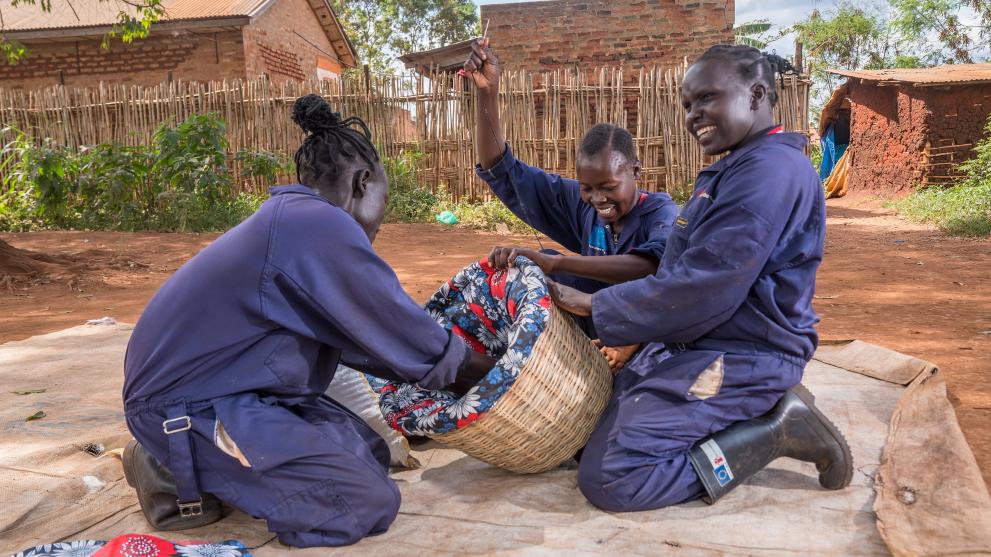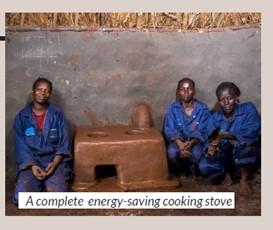
Cooking for a Greener Future: Empowering Refugees Through Sustainable Solutions
The EU Emergency Trust Fund for Africa, in partnership with Save the Children, Enabel, the International Centre for Research in Agroforestry (ICRAF), and the Joint Energy and Environment Project (JEEP), are actively promoting sustainable solutions and enhancing lives through energy efficient cooking as part of the Ugandan Refugee Response.
The project, known as "Response to Increased Environmental Degradation and Promotion of Alternative Energy Sources in Refugee Hosting Districts (RED)," supports income-generating enterprises that prioritize environmental and forest protection. This initiative aims to enhance and advance energy and environment programming, promoting sustainable solutions for both refugees and host communities.
The project contributes directly to the implementation of the Ugandan Government’s Water and Environment Sector Refugee Response Plan and seeks to achieve synergies and strengthen coordination with other actions and development partners.
Lilias, expecting a child, became involved in the initiative, which provided her with more than just a cooking appliance; it offered a lifeline that transformed her daily routine.
“I was trained on how to make an energy-efficient cooking stove from Save the Children last year in October,” Lilias recalled, her eyes shining with pride.
This energy-saving stove, known as the Lorena stove, has become an integral part of her daily routine.
“It has reduced the amount of firewood and charcoal we use,” she said. “I can cook multiple things at the same time, and as you can see, there is no smoke in my kitchen. I can also leave food boiling and attend to other tasks without worrying about children getting hurt.”
Trained in constructing an energy-efficient Lorena stove by Save the Children, Lilias now enjoys its benefits firsthand. The stove has significantly reduced her reliance on firewood and charcoal, allowing her more time for other activities and ensuring hot and healthy meals for her family.
She explains: "Cooking has become easier, and the stove’s retained heat allows food to continue cooking even after the fuel is exhausted."
One of the most significant challenges Lilias faced before receiving this stove was the constant need for firewood.
“The stove has reduced the amount of fuel I use. Previously, I would collect firewood five times a month, but with this Lorena stove, I only collect firewood twice a month,” she added.
This not only saved her precious time but also reduced the environmental impact of deforestation in the area. The ripple effect of this energy-efficient stove extends beyond Lilias’s household and into her community. Her determination to share her knowledge underscores the project's potential for sustainability and community empowerment. She envisions a sustainable future where she can pass on her knowledge and skills to others.
“I actively participated in constructing the stove alongside local artisans and learned the technique. When this stove gets worn out, I can construct a new one for myself and can teach others how to make for themselves,” she affirmed.
Lilias's journey exemplifies the tangible benefits of energy-efficient cooking on refugee livelihoods. With organizations like Save the Children and innovative solutions like the Lorena stove, a brighter future emerges, driven by resilience and hope.
She advocates for wider accessibility to such stoves:
"Every family should have access to this stove. Save the Children should consider constructing stoves for each household or provide training to enable families to build their own.”
In her words and actions, Lilias Sunday embodies the possibility of positive change even in the most trying circumstances.
Details
- Publication date
- 5 June 2024
- Author
- Directorate-General for International Partnerships
- Region and Country
- Horn of Africa
- Uganda
- Thematic
- Greater economic and employment opportunities
- Strengthening resilience of communities
- Partner
- Save the Children



